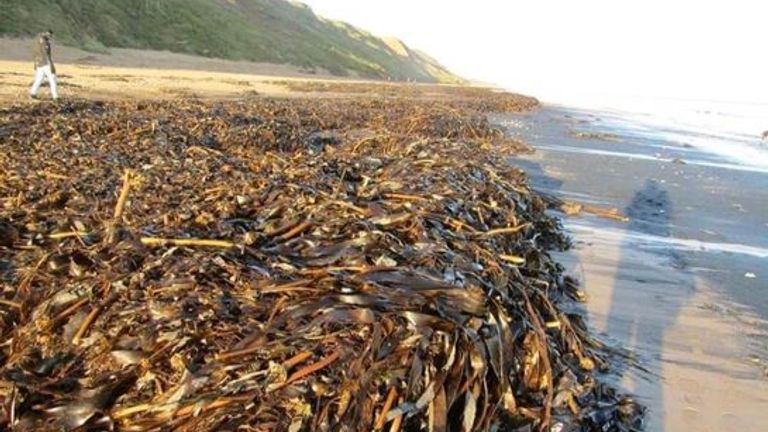An independent panel concluded it was “exceptionally unlikely” that dredging to expand a Teesside port caused the deaths of thousands of crabs and other marine life.
Mass deaths of the animals on the coastline from Hartlepool to Whitby saw swathes of crabs washed ashore between October and December 2021.
It resulted in distressing scenes of huge numbers of dead and dying marine life on beaches.
Fishing crews also warned that the event was “catastrophic” for their livelihoods.
Academic research suggested the deaths were caused by industrial pollutant pyridine, possibly from dredging in the mouth of the River Tees to maintain channels for port traffic.
But the independent panel, made up of academics, industry experts and chaired by the Department for Environment, Food, and Rural Affairs’ (Defra) chief scientific adviser Gideon Henderson, found that it was “very unlikely” the cause of death was pyridine or another pollutant.
Researchers from the Environment Agency and York University did not detect pyridine in the seawater, and toxic chemicals found in the River Tees were “significantly lower” than what would cause crab mortality, the panel said.
They instead concluded it was “about as likely as not” that a pathogen – a potential disease or parasite – new to UK waters caused the crab deaths.
In a statement, the panel said: “Although there is no direct evidence of a novel pathogen, it would explain the key observations including mortality over a sustained period and along 70km of coastline, the unusual twitching of dying crabs and the deaths being predominantly crabs rather than other species.
Click to subscribe to ClimateCast with Tom Heap wherever you get your podcasts
“It is also possible that a combination of factors lead to the unusual mortality, rather than one of the factors the panel considered.”
An earlier investigation into the incident, led by Defra, had pointed the finger at an algal bloom as the likely cause.
However, the new report also found this was “unlikely”.
Dead and dying marine life have been washing up on beaches around Teesside for almost a year since the autumn 2021 deaths, according to official documents and eyewitness reports seen by Sky News.
Dr Gary Caldwell, a marine biologist at the University of Newcastle, said: “There have been ongoing die-offs.”
He said the incident led to the “virtual extinction” of crabs and lobsters in the area around the Tees estuary.

